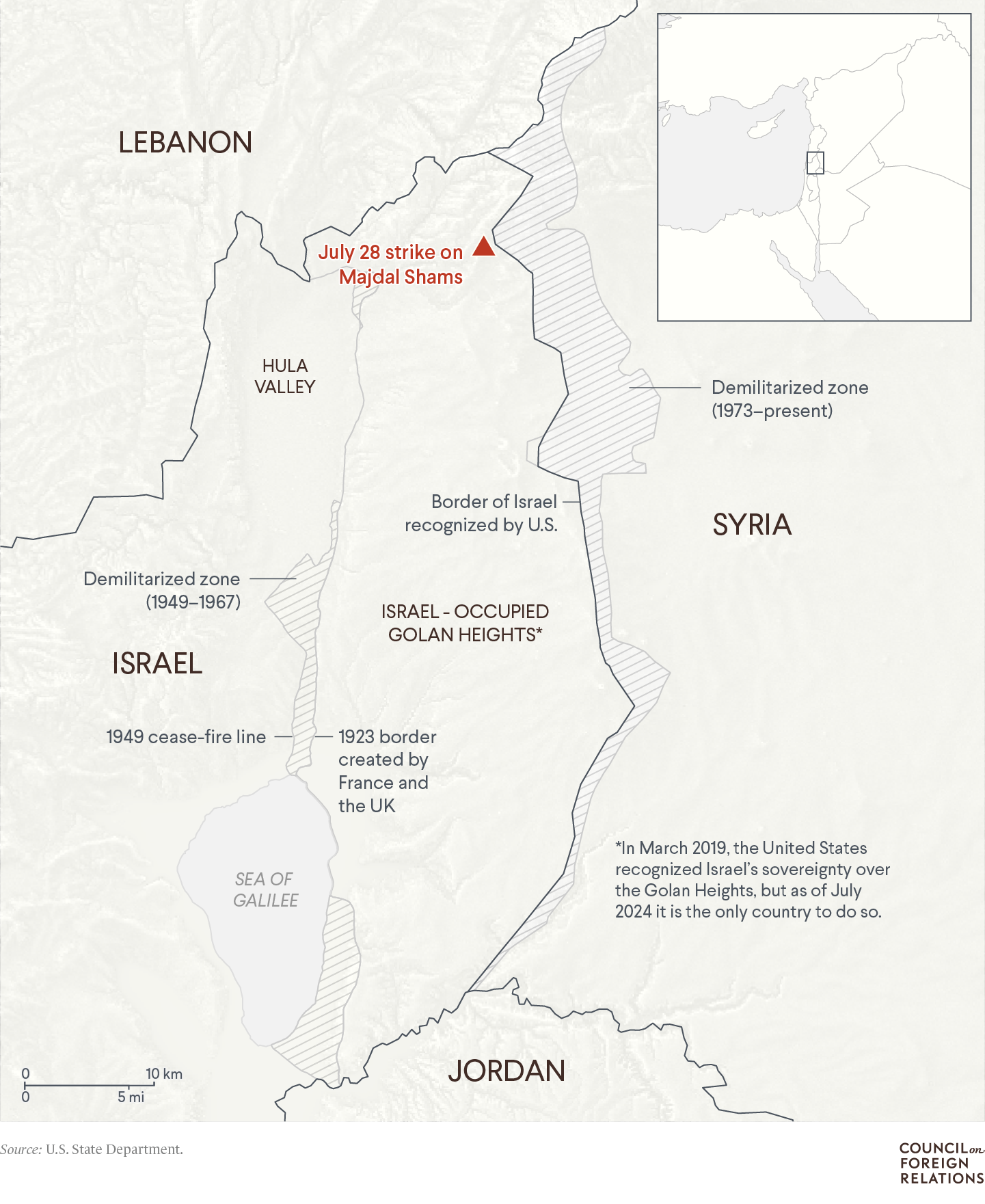Are Israel and Iran Headed for All-Out War?

The killing of Hamas political leader Ismail Haniyeh in Tehran and targeted assassination of a Hezbollah military official in Beirut bring Israel and Iran, through its proxies, closer to war.
July 31, 2024 12:48 pm (EST)

- Expert Brief
- CFR scholars provide expert analysis and commentary on international issues.
Steven Cook is Eni Enrico Mattei senior fellow for Middle East and Africa studies and director of the International Affairs Fellowship for Tenured International Relations Scholars at the Council on Foreign Relations.
Do the attacks in Beirut and Tehran signal a wider Israeli war with Iran and its proxies?
This is now more likely. The Israelis have been under attack from Iranian proxies since October 7. In recent weeks, the Israeli Defense Force (IDF) has clearly gone on the offensive with a raid on the port of Hodeida in Yemen that is under control of rebel Houthis, the strike Tuesday that killed Hezbollah military official Fuad Shukr in the suburbs of Lebanon’s capital Beirut, and the overnight assassination of Hamas leader Ismail Haniyeh in Tehran.
More on:
The Israelis—who have not yet taken responsibility for the Haniyeh assassination—are demonstrating both technical prowess and that they are serious about “changing the rules of the game” with the axis of resistance. Iran’s supreme leader, Ayatollah Ali Khamenei, has vowed revenge for Haniyeh’s killing, which took place after the inauguration of the new Iranian president in the capital. There is little doubt that Hezbollah will also want revenge for the killing of Fuad Shukr. The Houthis will also no doubt take part in any retaliation that Iran plans. Hamas, Hezbollah, and the Houthis, as well as militias in both Iraq and Syria under the auspices of Iran’s Revolutionary Guard Corps (IRGC), make up Iran’s axis of resistance. The IRGC leadership has, since at least mid-2023, encouraged coordination among those groups. The conflict between Israel and Hamas in Gaza has at times provided opportunity for this collaboration.

Does the Haniyeh killing effectively end current efforts to reach a cease-fire in Gaza?
Yes. The Qatari prime minister, Mohammed bin Abdulrahman Al Thani, posted on X shortly after the attack on Haniyeh that it was impossible to negotiate a cease-fire if one party is assassinating the negotiators of the other party. There is a self-serving quality to his statement, however. The Qataris proved incapable of convincing Hamas to agree to a cease-fire through many months of negotiation. In addition, it seems clear that the Israelis were quite serious when they declared the entire Hamas leadership “dead men walking.” The suspected killing of Hamas military chief Mohmmed Deif and now the confirmed killing of Haniyeh underscore that the Israelis mean what they say. Regardless of whatever negotiations were taking place—most recently in Rome—the Israelis were intent on exacting revenge and breaking Hamas.
The triggering event for this week’s escalation appears to be a missile attack on civilians in the Golan Heights that Israeli officials attribute to Hezbollah. What happened there?
Israel and Lebanon-based Hezbollah have been engaged in a low-level conflict that has grown bolder and more deadly (mostly on the Lebanese side) in recent months. Hezbollah had been targeting Israeli military bases in the Golan Heights, which Israel conquered in the June 1967 war, when an apparently errant rocket struck the soccer field in Majdal Shams, a major Druze town. The Druze of the area remain publicly loyal to Syria, though other Druze communities are well integrated into Israeli society.

More on:
With the strike on Fuad Shukr (or Hajj Mohsin), a military advisor to Hezbollah leader Hassan Nasrallah in Beirut, the Israelis wanted to send a strong message to the Hezbollah leadership that they are both vulnerable and that the IDF, despite months of combat, has the ability to inflict significant damage on Hezbollah’s Beirut stronghold. There is political pressure within Israel to take a more muscular approach too, both in response to the incident in Majdal Shams and more generally to resolve the grave threat the organization poses to Israeli communities near the Israel-Lebanon border in violation of UN Security Council Resolution 1701 (2006). About eighty thousand Israelis have left their homes fearing an October 7 style attack, not an unreasonable concern given recent discoveries of tunnels under the border.
How can current tensions be de-escalated?
No doubt, U.S. diplomats and others active in the effort to negotiate an end to the Israel-Hamas war will do their best to try to avert an intensification of the regional conflict underway, but they will likely fail. The Iranians are vowing revenge and the Israelis are daring them and their proxies to strike. This is an unpredictable moment. It seems quite unlikely the actors will pull back from a devastating fight. This is the war for which they have all been preparing.
Michael Bricknell and Will Merrow created the graphics for this Expert Brief.
This work represents the views and opinions solely of the author. The Council on Foreign Relations is an independent, nonpartisan membership organization, think tank, and publisher, and takes no institutional positions on matters of policy.
 Online Store
Online Store
